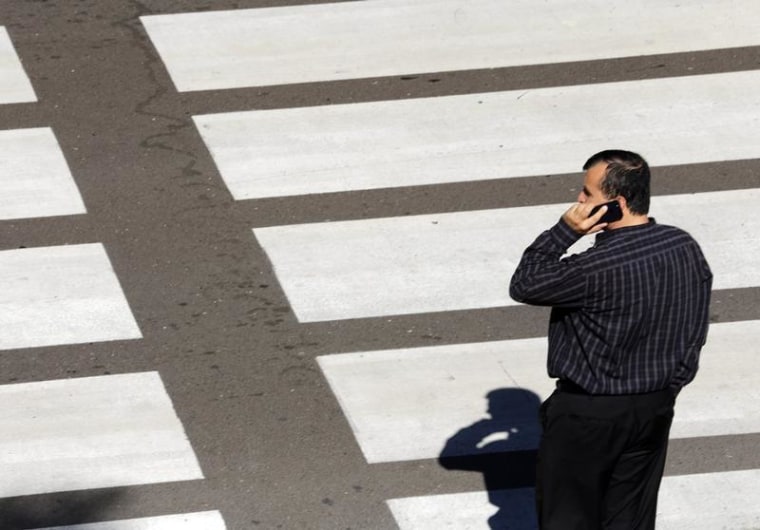WASHINGTON — The top telecommunications regulator on Thursday demanded that wireless providers voluntarily agree on the rights of consumers to unlock mobile devices once contracts end, or the Federal Communications Commission will make it a rule.
At issue is whether cellphone buyers, who often get new devices at a heavily subsidized price in return for committing to long-term contracts, should be able to take their gadgets with them when they change carriers.
The FCC and the wireless trade group CTIA have been working for eight months on developing a policy for the industry's Consumer Code that would address the rights of phone owners to unlock their devices.
In a letter to CTIA President Steve Largent on Thursday, FCC Chairman Tom Wheeler urged the industry to adopt the new unlocking policy within weeks, before the holiday shopping season.
"Enough time has passed, and it is now time for the industry to act voluntarily or for the FCC to regulate," Wheeler said in the letter posted online.
According to Wheeler's letter, the carriers agree that consumers should be able to unlock their devices once their contracts are fulfilled but have not agreed to a policy of notifying customers when their device is eligible for unlocking or automatically unlocking the device when it becomes eligible.
"Absent the consumer's right to be informed about eligibility, any voluntary program would be a hollow shell," Wheeler said in his letter.
The ban on unlocking originates in the U.S. copyright law overseen by the Library of Congress. The White House in March responded to an online petition protesting the law and sided with the thousands who signed it.
Lawmakers have introduced bills for a legislative fix but consumer advocates have urged the FCC, the agency that regulates the wireless industry, to get involved.
In a statement on Thursday, CTIA's vice president for regulatory affairs, Scott Bergmann, said the trade association would continue discussions with Wheeler and that consumers now can take advantage of a "wide variety" of unlocked devices and "liberal" unlocking policies.
He added that not all devices can be switched from one provider to another because of their technological or engineering specifications.
Opponents of unlocking have argued that the phones should be "locked," or prevented from moving freely across networks, because of the subsidies that carriers such as AT&T Inc, Verizon Wireless and Sprint provide to consumers when they buy the phones.
Wheeler's push on Thursday was welcomed by smaller rural and regional carriers who hope it will help them access more advanced devices now not manufactured with their networks in mind; and by consumer interest groups like Public Knowledge, which has accused the wireless industry of foot-dragging.
"If we all agree that people should be able to use their devices on any network they choose, it's time for that to be a reality," said Sherwin Siy, vice president of legal affairs for Washington-based Public Knowledge.
CTIA, where Wheeler himself was once president, has advocated for the passage of a bill in Congress that would narrowly repeal the Library of Congress decision that sparked this year's unlocking policy debate.
The Library of Congress is responsible for setting rules related to the Digital Millennium Copyright Act. Last year it stopped exempting cellphone unlocking from the reach of the law, meaning customers now have to request their wireless company's permission to legally unlock a phone even after fulfilling the contract with that company.
In response to the online petition that ensued, the White House said it would support a narrow legislative fix.
